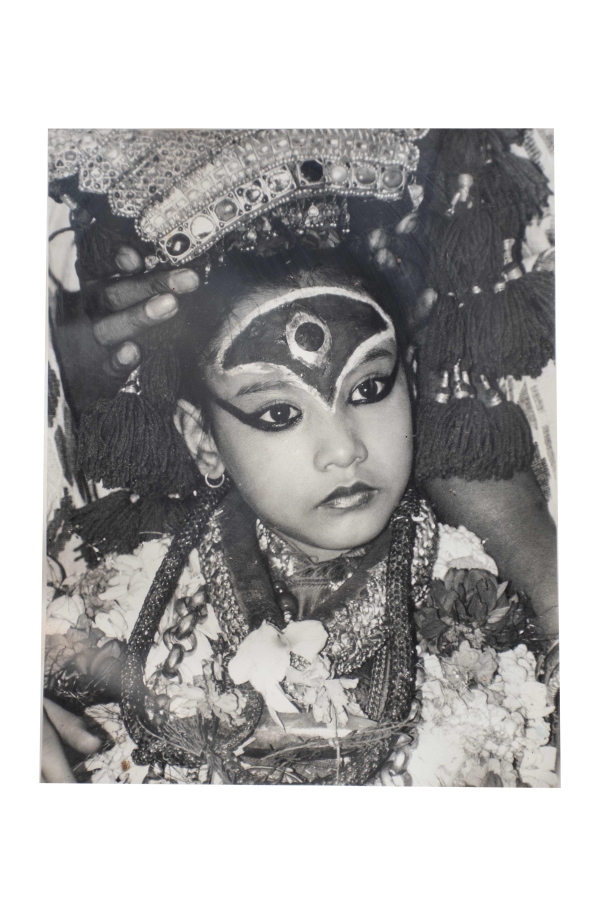
Before, you read that all roads led to Rome. In Nepal today, you read – and it seems the entire nation is being led to – the road. On it are truckers who don’t want to drive, students whose bravado makes every riot veteran reminisce (some are scouting the land for riot prodigies: the best hurlers of bottles and teargas capsules, the most eloquent shouters of curses, the most dexterous of firelighters and the swiftest of pathfinders when the cops get too close), political groups whose members form new groups everyday, entire localities where a person has been killed in an accident, and anyone who has an excuse not to be anywhere else. Amidst all of them is the politically neutral, liberal, sympathetic, and unfortunate traveler.
No where in the world are there more people on the road, but not on the move.
Our nation has shown the world what can be achieved by involuntary action. Regular bandhs keep our carbon emissions in check. Petroleum shortage means fewer vehicles on our roads, which in turn reduces accidents. We save more energy than any other nation; doubters need only look up our schedule for power cuts. Global recession can’t touch us; our people haven’t any money to lose. We don’t do things, we let them happen.
In Nepal, travelling has no ties with time. Our travelers can tell friends and family that they are leaving for a place, but can’t tell them when they’re going to get there or when they’ll be back. Today, a place you can’t wait to get to almost always turns into a place you can’t get to without waiting. All it takes for a simple journey to become an odyssey is a log or a couple of large stones blocking the road, and disgruntled people behind it. I’ve heard from people about their experiences of being in a road block, about having paid exorbitant amounts for water bottled from a nearby stream.
There’s a difference between a traveler who is going from point A to B and one who is going to a place, somewhere he has been planning to go. He wants to spend some time out on the road. He gets to do that, too much of it in fact, and suffers. The traveler craves movement and that is exactly what our roads cannot guarantee. There are more ‘movements’ and less movement on our roads.
All those who don’t believe patience to be a virtue, please, hit our roads. And if you are a traveler who is going to leave the road after a point to travel on foot, well, your adventure starts a little earlier than expected. You are one such traveler lost in your thoughts when your transportation lurches to a stop. The long line of stalled vehicles tells you there’s a road block ahead.
Sitting and waiting is inevitable when travelling on Nepalese roads. In some cultures it is a sign of sainthood, a virtue of the enlightened (or someone seeking it), a skill of those endowed with wisdom. Here it is just another one of our habits (or ability, if you believe we are stoic), more thrust upon than acquired. Next time you’re on a bus remember that you are in a great bus, one filled with saints, wise men and the enlightened, all disguised as ordinary people.
You alight from your vehicle and walk towards the crowd that has blocked the road. In the obstinate crowd are elderly men who talk and listen, women who talk amongst themselves, and youths with sticks whose appearance does all the talking. Situations like these invoke a sense of helplessness, the helplessness of ‘one’. You can’t do anything on your own. So a group of passengers try to rationalize with the road blockers, tell them it’s not proper to keep people waiting. The road blockers say it can’t be helped. The stranded always outnumber the road blockers. But that’s just data. Some analyzers of data muster the courage to forcibly remove the blockade and are chased back into their vehicles, and you are reminded that the chasers are more of a group and the chased are the crowd.
After talks break down between the stranded and the blockers the bus is the place to be. You see the man who comes back every once in a while and shakes his head glumly in response to his wife’s yearning look. He hasn’t any good news for her. “Do you need anything?” he’ll ask her, and go outside again to get it. Grandpa or grandma become nostalgic, and irritating as they talk to themselves, loudly, reminding an ungrateful audience of the good old days. No claps follow the trite monologue, maybe yawns. Outside, you notice someone sleeping under the bus. You recognize him as the bus ticket collector. He is the last person on the bus to tire from waiting. So when he falls asleep you know its going to take a while for the road to open. One of the most infuriating scenes in a road block is that of a group of policemen in riot gear sitting in the shade of a nearby tree, making it look like a spa. I don’t understand: How is it that there always seems to be a tree nearby to rest under, with cops under it, doing nothing, allowing everything? Maybe they deserve the rest. It must be exhausting work trying to enforce the law in a place where force itself is law. Musing on who’s wrong and who’s right helps pass the torpid passage of time.
It also provides the only satisfaction you can draw from being in a roadblock – the fact that you tried to see beyond the obvious, and avoided judging people.
For Nepalese the road is not just leveled concrete. It is much more. It may not be a fast means to somewhere, but it is the fastest one to attention, and eventually to that elusive right justice. Vehicles may be stuck on it but it’s the runway from which political careers take off. It turns boys into men and sometimes men into boys. The best talents in pyrotechnics stage their shows on it, burning rubber, and a traveler’s plans. It seems everything in Nepal happens on the road.
And the traveler in the midst of all this not only sees, but understands. You see people with sticks blocking the road and you understand they have no other choice. You learn more from a day of being stuck in a road block about Nepal than perhaps in a month of travelling.
Stuck in a road block your gaze sometimes fixes on the road running into the distance and you ask yourself, “Where is this taking us?”
Kapil Bisht is a freelance writer who frequently travels to and from his home in West Nepal on the bus (wishing, at times, that he had a racy red convertible to drive instead). He may be contacted at papercloudtree@hotmail.com.











